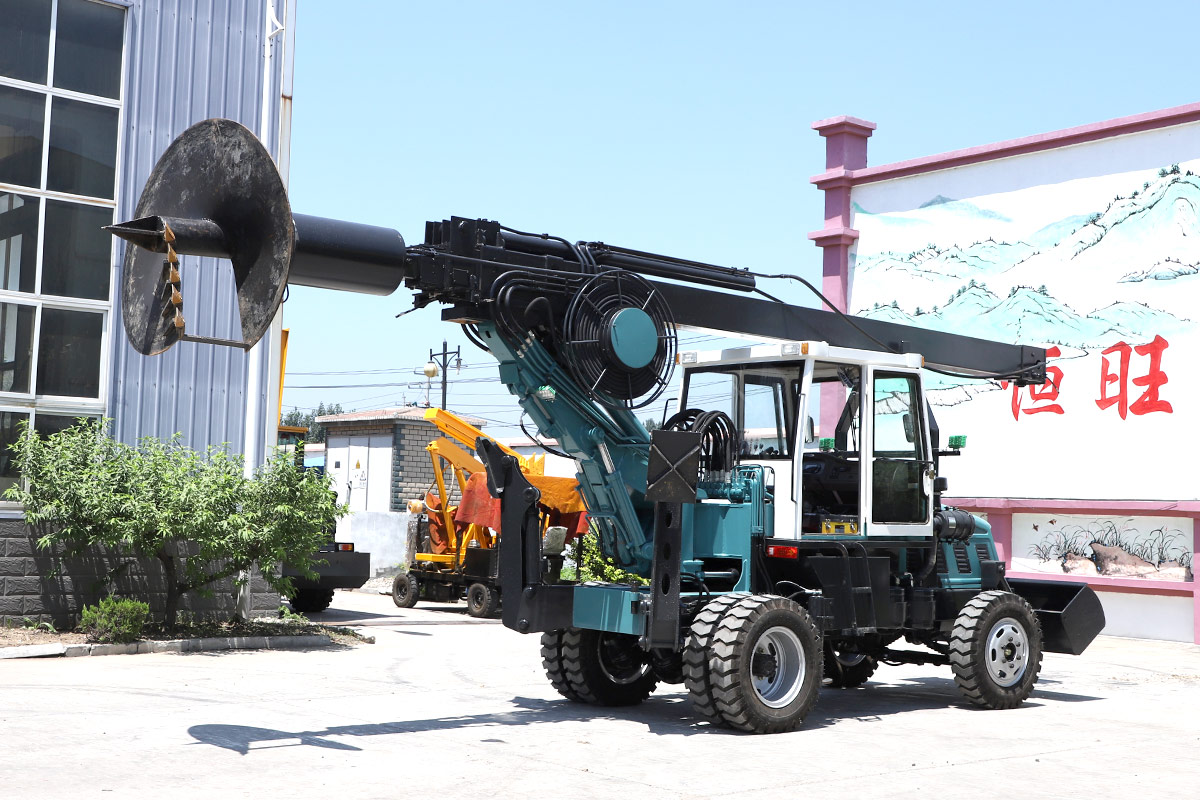Aug 23, 2022

The silt, fine sand, gravel layer and other strata are affected by loose structure, high groundwater level and poor shear strength. Underground corrosion and hole collapse are particularly prone to occur during engineering construction, resulting in diameter expansion, over-square, and mud containing. Construction quality problems such as high sand volume and excessively thick slag layer may even cause local collapse or overall collapse of the pile hole, and then buried drilling and other serious consequences. The safe way to construct in this stratum is to use full casing, but it is difficult to be used in China due to the high cost. Under the current domestic conditions, only through the effective use of mud wall protection and improvement of drilling operation methods and other technological means to prevent accidents, reduce the accident rate to a certain extent, and improve the qualified rate of hole formation. Solving the problem of collapse is mainly to prevent the formation of initial collapse and prevent the vicious circle of continuous collapse, that is, to solve the collapse is mainly to prevent, not to save.
1. Reasonable allocation of mud, according to the characteristics of flow-plastic formation, it is necessary to configure mud with high viscosity and medium bulk density for wall protection. In view of the different quality of domestic bentonite and high requirements for mud viscosity, the proportion of mud can be as follows:
Water: bentonite: CMC: soda ash = 1000:140:2.5:4, and after adding a little clay and stirring evenly, control the bulk density of the mud to be about 1.20, the viscosity not less than 45s, and the pH>8. It is especially worth noting that: after adding bentonite, cellulose, and soda ash to the mud pool, it needs to stand for a period of time (24 hours). After the bentonite is completely hydrated, pour clay into the mud pool and fully stir it with a long-arm small excavator. . And stir again with a small excavator 2 hours before drilling, and check whether the configured mud meets the requirements before drilling. ), otherwise add raw materials to the mud pool as appropriate;
2. Set ventilation holes on the drill bit to ensure the mud flow up and down the drill bit during the lifting process and prevent the occurrence of vacuum phenomenon during the drilling process;
3. Keep the slurry level 2-3m higher than the groundwater level, which can be achieved by raising the casing or setting up a clay dam around the hole;
4. Adjust the operation method: control the mud level, and always keep 30-40cm from the upper edge of the casing during the drilling process. (especially when lifting the drill). When drilling to soft soil and sand layer: Soft soil and sand layer are strata that are prone to collapse. During operation, try to reduce the scouring and disturbance to the hole wall. The operation method strictly follows the "three slow" principle: lifting and placing drilling and the drilling speed is slow, by strictly controlling the movement speed of the drilling tool, the disturbance of the mud to the hole wall is reduced, and sufficient time is left for the formation of the mud skin; ground observation: always pay attention to the mud level, when it is found that the mud level suddenly drops and When a large number of bubbles are gushing out, it can be judged that there is a local landslide, and the drilling should be stopped immediately and ensure that the drill bit is slowly lifted when the bottom of the drill bucket is opened to prevent secondary landslides caused by disturbance; local landslide accident handling: When When local collapse is found, continue to inject mud into the hole and pull out the drill bit, use the excavator to pour enough clay into the hole, then lower the drill bit to reverse the compaction of the clay, and reverse while pressing, and use the above-mentioned method after stabilization. method to drill in.
In the process of operation, pay attention to the following matters: During the drilling process, you should always pay attention to the mud level, and take corresponding measures as soon as possible if there are signs of collapse; maintain the mud level and add mud frequently; during the entire drilling process During the operation, the lifting and releasing of the drill bit must be very slow; pay attention to the settlement of the drilling rig. Once an abnormality is found, the drilling rig should be arranged to leave the site immediately, and the on-site personnel should be evacuated in time.
With the rise of the domestic infrastructure construction boom, the construction of large-scale engineering projects has started one after another, and the construction technology has continued to mature. Engineering construction projects will have a good driving effect.
Simply complete the form below and a Hengwang product expert will contact you shortly.